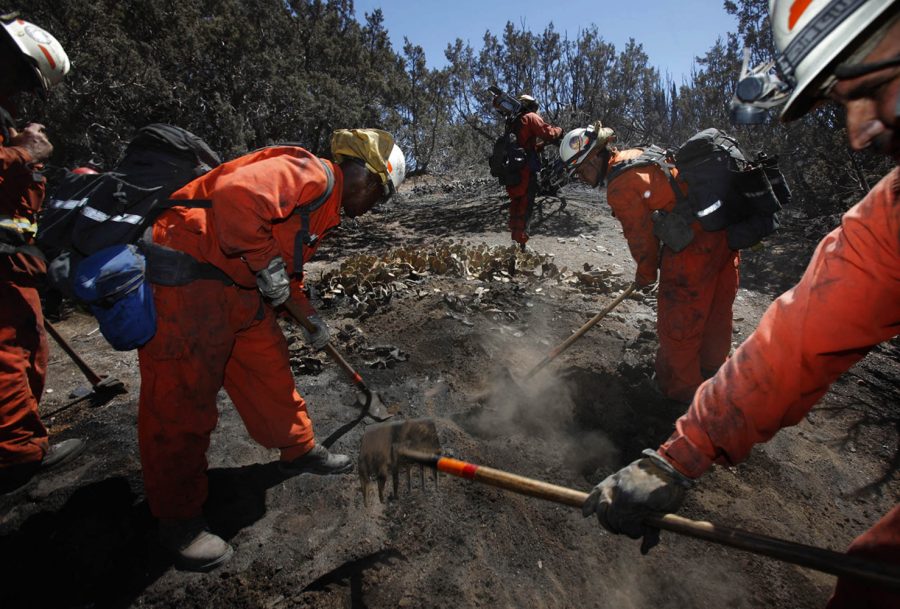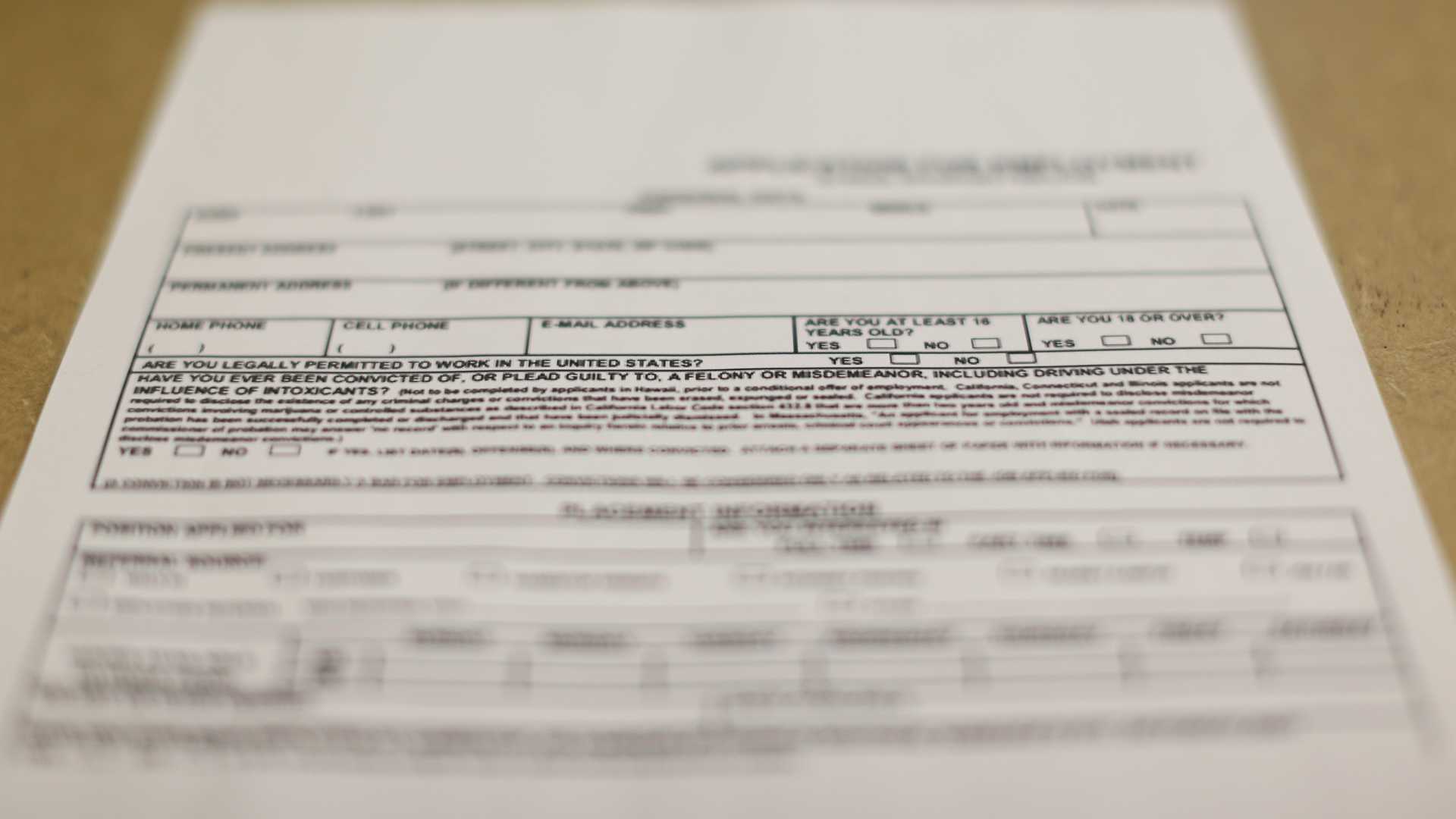Shaw: People with criminal records face mounting barriers
Previously incarcerated individuals face an immense number of barriers, including wrongful discrimination in employment opportunities on a daily and weekly basis.
(John W. Adkisson/Los Angeles Times/MCT)
Inmate firefighters based in Acton, California, work to overhaul hot spots left from the Crown Fire in Palmdale, California, on Saturday, July 31, 2010. The Crown Fire has burned more than 14,000 acres.
August 26, 2018
The news that thousands of inmates in California are risking their lives putting out wildfires for $1 an hour is spreading rapidly across social media. Despite serving on the frontlines of some the largest wildfires California has ever seen, the Health and Safety Code of California states that the conviction of any crime can result in the denial of an EMT certificate.
This is a gross disgrace and unfair but standard policy. The barriers returning people face in California pushed me to research the barriers they face in Iowa — a disappointing discovery that life for previously incarcerated individuals is bleak and vulnerable was unveiled.
On Aug. 25, I spoke with Michelle Heinz, the executive director at InsideOut Re-entry, about the struggles and limitations returning people face in their re-entry into Iowa society. The most astonishing is the news that “men returning from prison [in Iowa] faced an average of 40 percent reduction in annual earnings,” according to a study Heinz read by the Economic Mobility Project. She said, “Individuals looking for good and high-paying jobs are limited because employers don’t usually accept those with a record. What we see in Johnson County is people not being hired because of their record on a weekly basis.”
Vulnerability is at an all-time high for previously convicted individuals. They are discriminated against consistently because of their criminal history, and there is a constant struggle to survive in all aspects of life. This is inexcusable and a clear representation of the immense barriers people with criminal records face.
Some believe that employment discrimination against previously incarcerated individuals is fair and completely moral. James B. Jacobs, a professor of constitutional law and the courts at New York University School of Law, wrote in a Washington Post article, “It is telling that government itself not only condemns and punishes criminal conduct, [it] pervasively discriminates against persons with criminal records in hiring and occupational licensing (collateral consequences of conviction). It would be inconsistent and hypocritical to compel businesses, volunteer organizations, colleges and universities to ignore individual criminal history … It is well to remember that while ex-offenders need jobs, so, too, do people who have never been convicted.”
Mindsets such as this ignore that by denying employment to returning people with criminal histories, these individuals are immediately subjected to a higher level of vulnerability —systemic inequities target them and make them more likely to fall back into old habits rather than encouraging proper responsibility and action. Jacobs’ mindset arbitrarily targets those formerly incarcerated people to become more vulnerable, even after they rightfully served their time and went through necessary reform.
In a phone interview with UI Labor Center Director Jennifer Sherer on Aug. 23, she said, “In general, society is grappling with how to reduce over-incarceration. One of the ways to do that is to create better employment for those who have been convicted of crimes and provide jobs for them so these individuals can support themselves and not re-enter the prison system.”
This is necessary. These individuals are discriminated against based on their backgrounds and histories, which is immoral, and the denial of jobs or certificates, among other occupational licenses, will only burn their chances at rebuilding safe, respectable lives.
Legally and socially, there is a lot of work to do. The Ban the Box law was a great step in the right direction for leveling the playing field in Johnson and Linn Counties, but it is a limited intervention, Sherer said. To help the returning people, Heinz said, “All of us can help by trying to mitigate some of the stigma. Giving individuals a second chance and not allowing their past to influence their future. I think if there were antidiscrimination bills related to restricting employment on the basis of record, that would help legally.”




